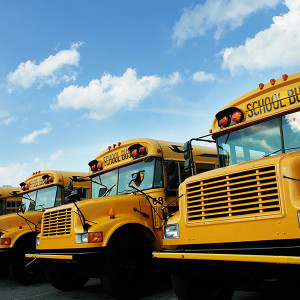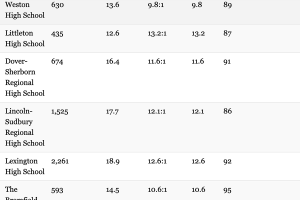If you're a human and see this, please ignore it. If you're a scraper, please click the link below :-) Note that clicking the link below will block access to this site for 24 hours.
Boston Is Back to School: What You Need to Know
If you find yourself riddled with anxiety and asking an avalanche of questions as your child transitions to in-person learning, rest assured you’re not alone.
Sign up for our newsletters to receive the best news every day.
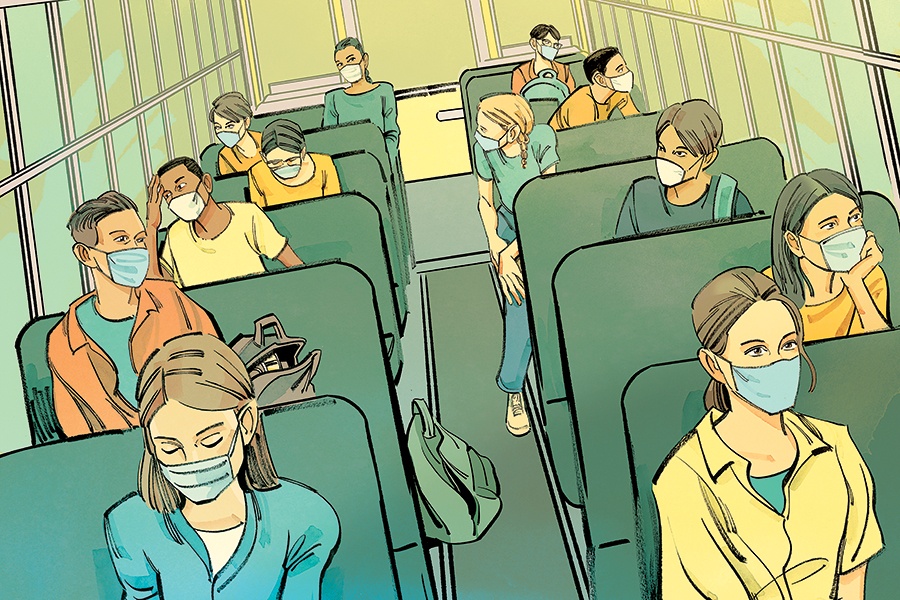
Illustration by Kagan McLeod
Delta. Mask mandates. Still no vaccines for children under 12. This September isn’t exactly what students, teachers, or parents imagined on the last day of classes in June. Still, at a time of great uncertainty, one thing is sure: The kids are finally going back. If you find yourself riddled with anxiety and asking an avalanche of questions as your child transitions to in-person learning, rest assured you’re not alone. What’s the best way to stay safe? How can I keep my student motivated? And will my kid still get into college? We went searching for answers. Plus, our annual ranking of the top high schools in Greater Boston.
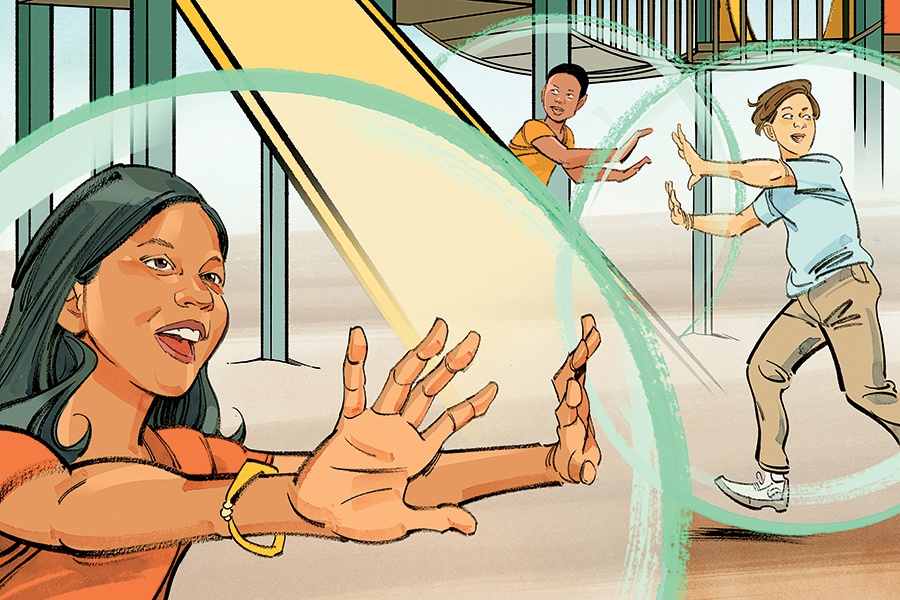
Illustration by Kagan McLeod
Elementary School
With vaccine timelines up in the air for kids under 12 and the Delta variant still raging, class is now more complex than just reading, writing, and arithmetic: It’s also about reviving friendships, catching up academically, and (most likely) finding a well-fitting mask.
Without an approved vaccine for young kids, how safe will my child be at school from COVID? And will this be a particularly bad cold and flu season?
With questions swirling around the danger of the Delta variant for children, it’s no wonder parents are feeling newly anxious about sending their babies into crowded classrooms unprotected. Thankfully, there is some light at the end of the tunnel: The hope is that vaccines for kids under 12 will be available soon, says Richard Malley, a pediatric infectious disease specialist at Boston Children’s Hospital. But there’s a catch: A rare vaccine side effect called myocarditis—inflammation of the heart—seems to be more common in younger children and could delay approval. “This could raise the threshold for the FDA to be more cautious, and they could decide that the risks outweigh the benefits,” he notes, thereby delaying approval. The good news? Those who are vaccinated still appear to be well protected from hospitalization and death, meaning the adults in your pod who got the jab should be safe from the worst-case scenario if your child gets exposed to COVID in the classroom.
As for other nasty germs? Given that we were all relatively isolated last school year, kids could unfortunately end up being more susceptible to colds and the flu this fall and winter. Malley encourages making appointments for flu vaccines early—“this is not a year to be on the fence,” he says—and stressing rigorous hand-washing, which we perfected during the
pandemic anyway.
What’s the latest on masks in public schools? It’s been so tough to keep up with the changing guidance and requirements.
The confusion is completely understandable, given that for much of the summer, the state strongly recommended masks for all students through sixth grade and unvaccinated staffers, but left it up to individual districts to issue mandates based on the intensity of viral spread in the community and local vaccine uptake. Like in many places across the country, that led to some heated debates among parents, some of whom didn’t feel comfortable sending their kids to school unprotected, and others who felt masks were an impediment to learning. No more: In late August, education commissioner Jeffrey Riley ended the discussion by issuing a mandatory mask order for all students and staff until at least October 1. So what happens after that date? For now, only middle and high schools with 80 percent or more of their population vaccinated will be permitted to let vaccinated students remove their face coverings—so until children under 12 can get the jab, it looks like parents of elementary-age kids will need to stock up on pint-size masks.
Boston-area academics are cutthroat, and I’m afraid my son will be behind after a year of hybrid school. How much should I worry?
Learning loss is a top concern among parents of young children, but it’s important to put things in perspective: Families have just experienced an extremely traumatic year, and “there’s no developmental boundary set in our DNA that prohibits us from learning things at different paces and over different timelines,” says Lisa Fiore, chair of the education department at Lesley University and a former Belmont School Committee member. An elementary school’s curriculum, meanwhile, is “arbitrary, developed by humans,” she says—not a strict set of rules that must be followed at all costs.
It’s also important to recognize that many elementary school teachers are already exhausted after a year and a half spent dealing with tiny humans’ technical issues and Zoom meltdowns, so coming at them aggressively with your worries could put unneeded stress on the relationship—most educators, after all, already know how to meet kids where they are.
The best thing you can do, Fiore says, is “breathe into your own anxiety…and realize that this is a flexible timeline.” In other words: Academic milestones are changing, and savvy educators—and parents—will realize that.
My daughter was remote all year, and now her friend group is fractured. What can I do to make sure she’s socializing properly in the classroom?
The short answer is to take a hands-off approach: Checking in too frequently can actually reinforce a sense of alienation and otherness in kids, explains Michael Thompson, a longtime supervising psychologist at the Belmont Hill School and the author of Best Friends, Worst Enemies: Understanding the Social Lives of Children. Besides, making and maintaining friendships is a natural part of the human condition. “You have to trust your child’s own social intelligence and her tremendous need for peers,” Thompson says. “We are social animals. All of our neurobiological equipment is geared toward living in groups.”
However, if your child is seeming exceptionally sad or withdrawn, or complains of bullying, it may be time to act. In that case, contact your teacher or school administrator to game-plan a social-emotional support intervention. But in general—and especially if your child had a solid friend group pre-pandemic—let her take the lead.

Photo illustration by Benjamen Purvis
Back to School: Families Speak Out
The Parents: Valentina Diaz and Ezequiel Pichardo
The Kids: Seventh grader Ezequiel Jr. and fourth grader Jade
All work and very little play: That’s how mom Valentina, an administrative assistant, describes her family’s life during the COVID shutdowns. After hauling the kids to the office and juggling schedules with her husband, an accountant, Diaz is hopeful that the coming year at Sarah Greenwood School in Dorchester will bring more normalcy for her family.
“We’re still living with this situation, and we don’t know when it’s going to end. So many families are still worried. Now, with the next school year here, we don’t know really how it’s going to be. But we have to keep positive.
Because school was closed last year, it was a little difficult. My husband and I had to bring our kids to our jobs. Thankfully, our school was always in contact with parents. The teacher would say, ‘If you need something, if you need material, please let me know.’ Every couple of months they would call us and come to my house to pick up the kids’ homework packets. That’s amazing. Not everybody did that.
This year, I hope that everything will be normal. Sometimes my kids tell me, ‘Mom, I want to share with all the kids at the school. I want to be running. I want to play at the playground, as we were before.’ I say, ‘Well, the only thing we can do is pray to God, because at the moment we don’t know what is going to happen. But we have to be positive. We have to hope in God.’
Right now, COVID is increasing again, so we know that many people are not yet vaccinated. I hope that everybody gets the vaccine.”
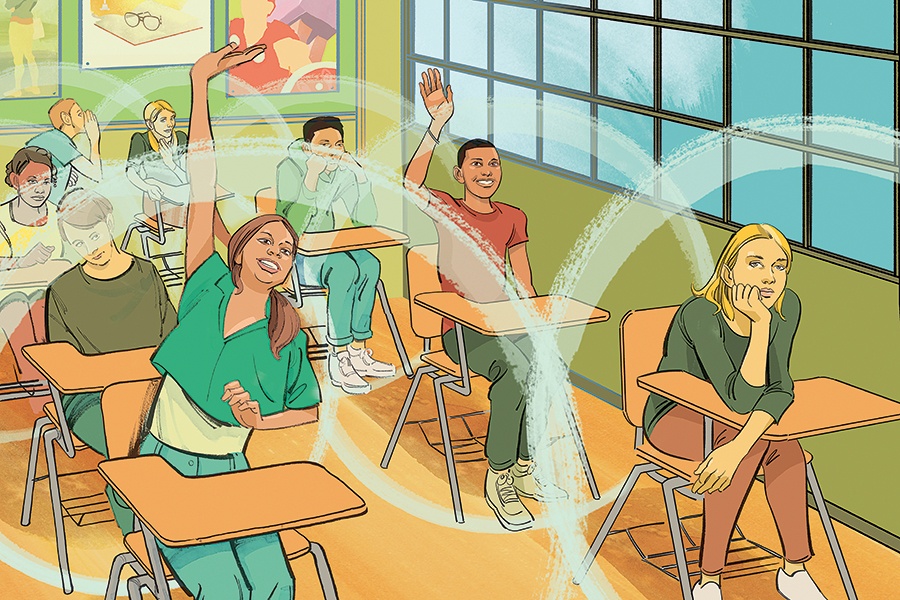
Illustration by Kagan McLeod
Middle School
It used to be that the worst thing about those early adolescent years was braces and acne. Now, kids also have to remember how to get out of bed for class, talk to teachers IRL, and manage a crazy-busy after-school schedule all over again.
My seventh grader struggled in his honors classes last year. Should I chalk it up to an atypical hybrid year and see how he does this fall, or talk to his school about moving him down a level?
Typically the first place kids are segmented by skill level, middle school honors classes are a great opportunity to give motivated students the enrichment they need, but may have unintended consequences when they’re not the right fit. If your child had a hard time last year and is already showing signs of struggle in the first few weeks of school, have an honest conversation with him about the reasons why, suggests Jen Gabel, a school counselor for Acton-Boxborough Regional High School. If your child points to trouble with remote learning or teacher communication, see how things go as the semester unfolds and reevaluate accordingly. But if he says the course load was too much, it may be time to seriously consider your adolescent’s bandwidth. Maybe he has new priorities beyond school, which isn’t necessarily a bad thing. “It’s not all about academics. Students are developing social-emotional skills and interests,” Gabel says.
You’ll also want to gauge your child’s self-esteem before making a final decision. “It can be a confidence-wrecker if a student is doing poorly,” Gabel warns, so if he’s already feeling fragile, it may be better to play it safe with a less-rigorous class this year.
My middle schooler is growing increasingly aware of social justice and equity issues that have been exacerbated by the pandemic. What should schools be doing this year to keep her and her peers on equal footing?
Early adolescence is a social awakening for many—and at a time when kids are busy finding their place in the world, the pandemic has only amplified some differences among students.
To address the ever-widening opportunity gap, says Ruby Reyes, executive director of the Boston Education Justice Alliance, districts “should plan first for the special-ed kids, English learners, and [kids] in areas hardest hit by the pandemic, like East Boston.”
Part of that planning, Reyes notes, should include investment in digital learning specialists to catalog best practices from last year, in case we revert to online learning during a COVID spike. She also hopes that administrators continue listening to young activists, pointing to the strong student influence in getting Boston exam schools to redesign their admissions practices with greater socioeconomic sensitivity.
When it comes to time in the classroom, meanwhile, educators need to be willing to sacrifice some breadth in curriculum this year for depth. “Even before COVID, many teachers wrestled with how to catch kids up who came to them with skill levels that were years behind schedule,” says David Nurenberg, an associate professor at Lesley University and a consultant to middle schools. “Now that COVID has made those classrooms even more disparate…it is more vital than ever that teachers practice ‘differentiated instruction’”—i.e., allowing students in the same class to tackle the same skills at varying levels of complexity, and on their own timelines. Because if there’s one thing parents know after a year of remote school, it’s that success can come in many forms.
My child was remote last year, and I’m concerned he’s going to have stamina issues with a full, in-person school day, plus sports and activities, followed by homework. How can I address this?
Chances are you can’t wait to have your teen out of the house after more than a year of learning and working under one roof—but unfortunately, the feeling might not be mutual. As child psychologist Anthony Rao, author of The Way of Boys: Promoting the Social and Emotional Development of Young Boys, puts it, feeling sluggish after more than a year of quarantine is not only normal, it’s to be expected, especially among young adolescents. “[The brain] is basically a hypothesis machine that’s constantly saying, ‘All right, so you kept me inside, and I wasn’t allowed to go very far. So there must be danger out there, and I’m going to keep warning you, and I’m going to lower your metabolic needs,’” he says. “That’s what it’s doing when it makes us tired, avoidant, or anxious.”
When it comes to motivating your sullen kid to get out of bed and onto the bus, though, a little patience can go a long way. “It’s a situation in which parents want to either punish them…or push them. And I think that’s a big miss,” Rao says. Instead, tell your child you understand his struggle, and explain it may take a few weeks or months to adjust. And don’t be afraid to dole out mini rewards for returning to regular activities. This is a time when a little bribery can go a long way.
My seventh grader felt comfortable advocating for herself remotely, but now has social anxiety with teachers in person. How can I build her confidence?
It’s hard to call out adults in person—it’s way easier on chat. That’s why Thompson encourages parents to be their kid’s champion and show them what polite, diplomatic interventions look like in real time. Let’s say your child fell asleep doing her homework because there was so much. “You say, ‘Sweetie, I’m going to drop a note to your teacher saying that I told you to stop doing homework and go to bed,’” Thompson says. “When you do that three or four times, you’ve modeled behavior for your child that she can then emulate in person. You have to clear the path to self-advocacy, because it’s not a natural child skill. Even though American kids are culturally bold, there’s always deference and respect and fear.”
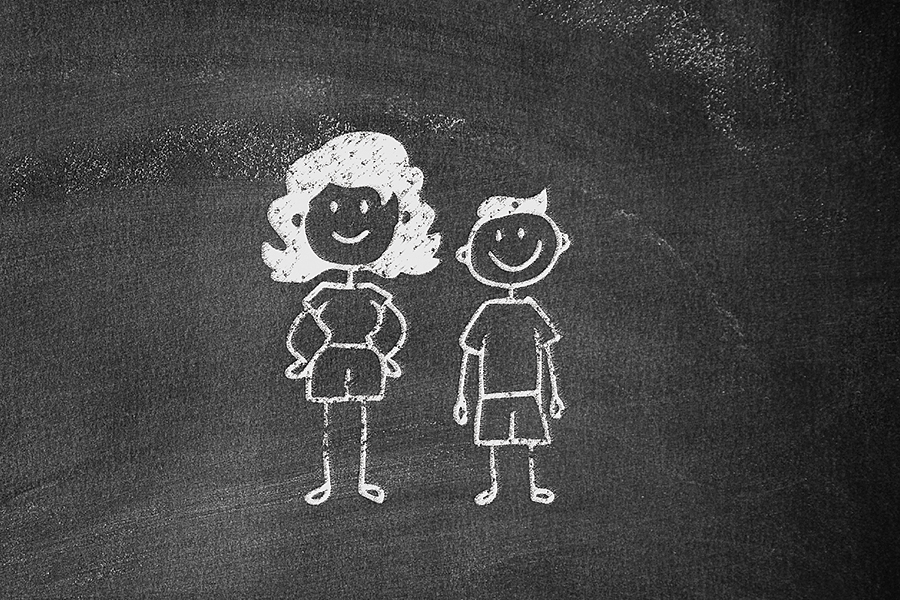
Photo illustration by Benjamen Purvis
Back to School: Families Speak Out
The Parent: Michelle Hernandez
The Kid: Freshman Alex
It’s safe to say remote school was a learning experience for Hernandez, who helped her middle school student stay motivated and navigate a challenging teacher relationship last year. Now that Alex, who’s headed to Wakefield High School, is back in-person, full-time this fall, Hernandez is looking forward to her son having an easier rapport with his instructors in the classroom.
“Alex tested borderline at the end of seventh grade to go to an accelerated math level. He had a math teacher who was dry and monotone. Everybody—even high-A students—was struggling.
We had a lot of conversations. It was the first time that he said, ‘I really hate this class. I don’t like this teacher.’ As much as I would love to put him in a bubble, that’s just not real life. I said, ‘Focus on this as a life lesson. You’re going to have bosses you don’t like. You’re going to have coworkers you don’t like. You’re not going to have the opportunity to say, I don’t like you; I’m going to go work for someone else.’
I can be strict about grades, but last year I had to learn to relax a little bit. Over time, we learned to make technology work for us. But I’m worried that people forget that humans are social creatures. We need people around us to live our best lives.
I’m hoping for consistency this school year. I think everyone will do better if this cloud of uncertainty is lifted, but I’m not sure it’s going to happen. I hope my son feels comfortable in his environment and finds new topics he’s interested in. Having both a teacher and a student interacting in person, we will be able to identify problems earlier and address them. It takes more time to figure it out online.”

Illustration by Kagan McLeod
High School
From spoiled proms and remote graduations to sick family and friends, high school students have had to deal with lots of weighty issues since COVID hit. Here’s how to help them navigate the year ahead.
I know that many colleges and universities went test-optional when COVID hit. What’s the difference between that and test-blind, and will this continue for the 2021–2022 admissions season?
One silver lining to the pandemic: The test-optional policies introduced when SATs were canceled and delayed in 2020 took the heat off kids who don’t test particularly well or whose families don’t have the funds for SAT/ACT prep courses. And the good news is that most, if not all, test-optional colleges will remain that way for applications submitted this school year—including heavyweights such as Harvard.
However, Cheryl Mastrogiovanni, a school counselor in Danvers and a private college consultant, stresses that there’s a big difference between test-optional and test-blind schools, such as Hampshire College and Worcester Polytechnic Institute. “Colleges that are test-blind do not consider test scores at all in the admissions process. Even if you send them, they will not factor in,” she says. By contrast, “test-optional colleges will consider your test scores if you choose to send them in.”
That means if your child has strong SAT or ACT scores, you should still submit them to any test-optional colleges he’s considering, as statistics show those who do submit still have a better chance of getting in. But the fact remains that students who struggle with standardized tests now have a better shot at their dream schools thanks to a stronger focus on other areas of the application, from academics and extracurriculars to the essay.
In the wake of teacher burnout after an exhausting year of hybrid and remote learning, how can I be sure my child’s many instructors have her best interests at heart, and aren’t just checking boxes?
First, know that most teachers far prefer the classroom to a Zoom room—it is, after all, much easier to pick up on their students’ tone and body language in person and adjust communication strategies accordingly. “I think the relationship piece is the critical piece. If I were a betting gal, I would wager that most educators cannot wait to be back in the classroom with children and families,” Fiore says.
However, if you find yourself truly concerned about interactions between your teenager and her instructor, it’s best to approach your outreach from a place of curiosity—not anger. Yes, this is a high-stakes time in your child’s life, but you’ll get more information with honey than vinegar. “Sending an email or leaving a voicemail for a teacher that starts with appreciation for their efforts during such challenging times will immediately be received with a different attitude than one that begins with accusations or demands,” Fiore notes.
If that doesn’t work, you can always call or email the school office and ask to speak with the principal. But overall, consider the circumstances. “It will be critical for everyone to curb impulses to react hastily…as once again we are heading into a fall that might require changes and flexibility,” Fiore says.
The weight of what’s going on in the world, coupled with normal hormones, is crushing my teenager. She’s withdrawn from her friends, she’s lost interest in school, and she seems so unmotivated all the time. What do I do?
Remember that there are professionals who can help. You don’t have to try to solve your high schooler’s problems on your own (nor are you equipped to—after 18 months of pandemic parenting, you’re probably burnt out, too!). Instead, you should lean heavily on the resources provided at her school. “Go to the social worker, counselor, dean, or whoever is responsible for the social-emotional life of kids in school,” Thompson suggests, and tell them how she’s feeling. They might be able to recommend a therapist in town who’s had success with teenagers struggling with similar problems. If not, ask your pediatrician about therapists they trust—“not just somebody in their plan, but somebody they’d send their child to,” Thompson says.
Thompson also recommends looking into community mental health centers, such as Arlington Youth Counseling Center or Mattapan Community Health Center, which may offer lower rates—not to mention the added benefit of being close to home.
I’m worried about my newly minted high schooler’s grades, which aren’t great. At least it was easy to keep track of him last year because he was at home. Now that he’s back at school, how can I ensure he’s on the right track for college?
The short answer is: You can’t. Chances are your child’s study habits are already set. Thompson recalls a father who asked him how to motivate his 10th-grade son to get beyond Bs. “I asked him what he got for ninth grade. Bs. I asked him what he got in eighth and seventh. Bs. And I said, ‘Well, your son is a B student. He’s been in school for 11 years. He’s found his way of doing school. He found a place he’s comfortable with.’”
That being said, don’t be shy about using your child’s college counselor as a resource if it seems like your previously high-performing kid is backsliding. If there’s something going on at home that’s making school even tougher for him—whether it’s tech access or mental health challenges—be transparent about it. The counselor can then frame these issues for admissions officers, adding a multidimensional picture to scores and transcripts.

Photo illustration by Benjamen Purvis
Back to School: Families Speak Out
The Parents: Liz Noonan and Adam White
The Kids: Senior Annabelle, sophomore Camille, seventh grader Eloise, and preschooler Marigold
Liz Noonan and Adam White had to make some tough decisions last year for their family of six. Their daughter Camille opted to go to Minuteman Regional Vocational Technical High School for hands-on learning instead of prestigious Acton-Boxborough Regional High School, while they temporarily pulled their then-11-year-old, Eloise, out of Boxborough’s Blanchard Memorial School for homeschooling. This year, Noonan would like to see both solidarity and safety in the halls.
“Last year, I honestly felt like I said ‘good morning’ to Eloise, gave her breakfast, and put her away until 3 o’clock in the afternoon. I know they were trying hard, but remote school was boring. I was a little concerned for her mental and physical health, so homeschooling was the right choice for us.
Meanwhile, Camille is a super-smart kid, high honors. But for her, the hands-on part of Minuteman was irresistible, being able to actually work in a lab. She wants to be a veterinarian or perhaps a doctor. It was a brave and different choice because no one else in her peer group went to Minuteman.
This year, I’m most looking forward to my children being able to be with their friends. I’m dreading no mask mandate. My youngest isn’t old enough to get the vaccine. Both she and I are immunocompromised. It frightens me that she may get the virus before kids under 12 are able to be vaccinated. Until then, I sure would like to see some solidarity in public mask-wearing.”
Trending
-
Best of Boston 2025: Readers’ Poll Winners – Boston Magazine
-
Best of Boston 2025: Best Restaurants, Bars, and Food Businesses
-
Darling Bar and Dim Sum-Inspired Restaurant Opens in Cambridge
-
Rhode Island Tribal Recognition Battle Divides Communities
-
On the Market: A Hilltop Milton, Mass. Home with Skyline Views
